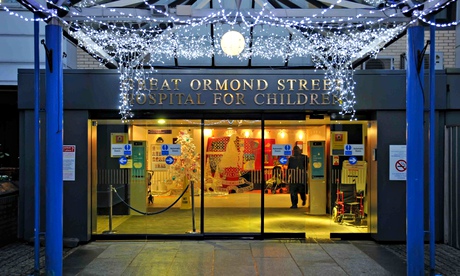The use of whole genome sequencing could save the NHS millions of pounds, a study suggests, after it found a quarter of people with rare illnesses received a diagnosis for their condition through the technology.
In some cases, the findings have provided reassurance for families that they have not passed their condition on to their children, while in others they have inspired life-changing treatments.
Though individually uncommon, rare inherited diseases affect about 6% of the UK population, or roughly 3 million people. Traditionally, geneticists searched for the abnormalities underpinning such conditions by looking at the person’s chromosomes through a microscope, but this is no good at spotting tiny, but often highly significant changes, such as single letter substitutions in the genetic code.
Because of this, “many of the people who have a rare disease either live very long diagnostic odysseys to get an answer for why they are like they are, or they do not get an answer in their entire lifetime”, said Prof Sir Mark Caulfield at Queen Mary University of London (QMUL)a former chief scientist at Genomics England.
In 2013, the UK government launched the 100,000 Genomes Project to investigate whether WGS – which involves reading through the entire 3bn pairs of letters in the human genome – could help doctors better understand the cause of patients’ symptoms, and identify other family members who may be at risk. Five years later, NHS England became the first national health care system in the world to offer WGS to people with undiagnosed rare diseases and cancer as part of routine care.
The study, published in the New England Journal of Medicine, is the first to analyse the diagnostic and clinical impact of such genetic sequencing within a national healthcare system. Researchers led by Caulfield and Prof Damian Smedley, also at QMUL, analysed the genomes of 4,660 people from 2,183 families – all early participants in the 100,000 Genomes Project – looking for rare genetic variants that might explain their conditions.
Doing so led to a new diagnosis in 25% of patients – many of whom had endured years of medical assessments without satisfactory answers – and in a quarter of these cases, this resulted in them receiving more focused care, such as further family screening, the provision of vitamin or mineral supplements, or other therapies to help them manage their condition.
For certain conditions, including intellectual disability, vision and hearing disorders, the diagnostic yield was even higher, at 40-55%.
Among those to have benefited is Terri Hedley, a 41-year-old paramedic from Newcastle upon Tyne, whose father, Leslie, endured years of treatment for a serious kidney disease, including two kidney transplants, and whose uncle also died from kidney failure. Hedley was similarly diagnosed with kidney problems at the age of 21.
For the past two decades she has been taking medication, but recently her kidney function has deteriorated and she may eventually need a transplant as well. Her biggest fear was that she may have passed the condition on to her daughter Katie, aged 20. But without knowing the cause of their condition, there was no way of testing her for it. WGS has now identified the gene responsible for the family’s problems, and revealed Katie is not carrying it.
Hedley said: “It has been fantastic to find out that Katie isn’t going to have to go through everything my dad went through, and what I might be going through in the future. It means the kidney trouble essentially stops with me.”
In a separate case, genomic analysis of a baby boy who died aged four months revealed his problems were caused by an inability to transport vitamin B12 into his cells. Identifying this genetic abnormality enabled his younger brother to be diagnosed with the same problem within days of birth, and pointed to an effective treatment: weekly vitamin B12 injections that have prevented his illness from progressing.
As well as improving patients’ lives, WGS can also free up NHS services, saving hundreds of thousands of pounds in some cases. For instance, a 10-year-old girl who endured multiple hospital visits and intensive care admissions during her seven-year diagnostic odyssey is estimated to have cost the NHS £356,571. Once genome sequencing identified her underlying problem, the bone marrow transplant that cured her cost £70,000.
Smedley said: “This is the first time that whole genome sequencing has been directly embedded into rare disease diagnostics in a healthcare system like the NHS and applied at scale across the full breadth of rare disease. This study makes the case for healthcare systems worldwide to adopt whole genome sequencing as the genetic test of choice for rare disease patients.”
As helpful as WGS has been for the 25% of patients to have received a diagnosis, that still leaves 75% who are still waiting for answers. Because their genome sequences have been stored in a data bank, the hope is that further diagnoses will emerge as researchers learn more about the genetic underpinnings of disease.











